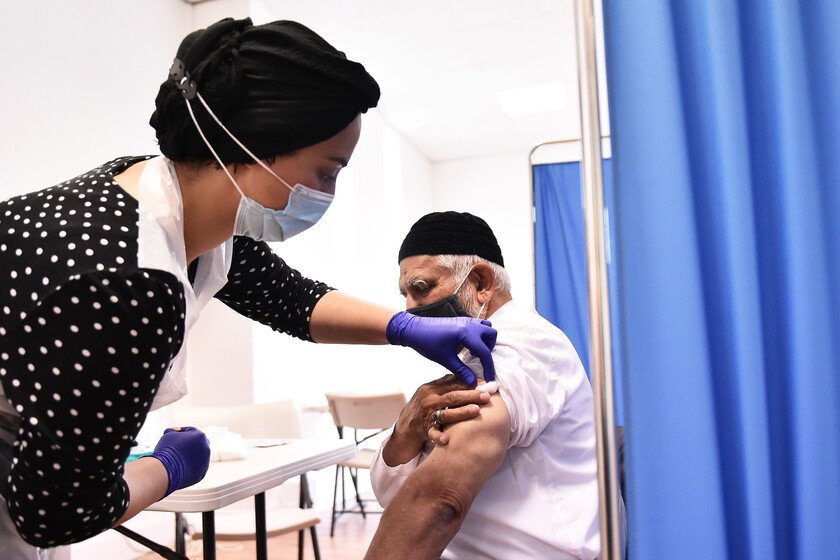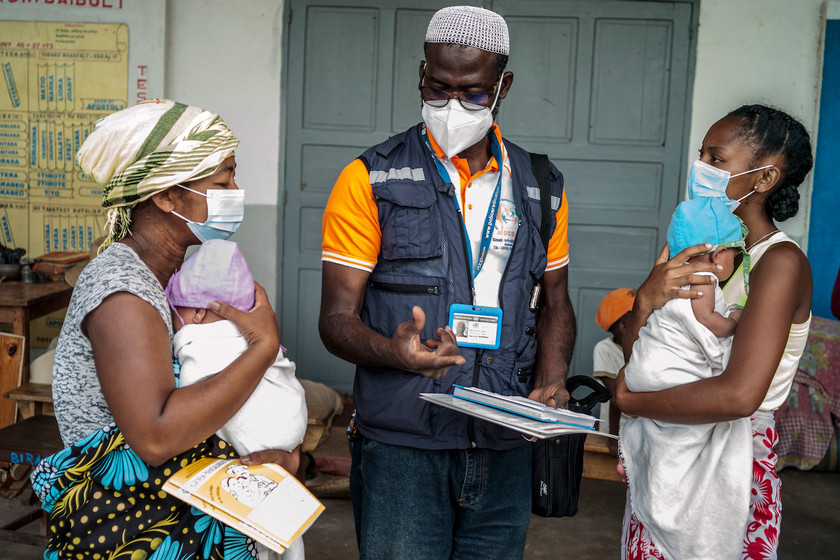
Search results
Showing 1 to 20 results of 960


How can the world adapt to Covid-19 in the long term?
Covid-19 is here to stay. However, with careful management we can prevent future outbreaks and move from pandemic to endemic. But what does…

'Voices in the dark': Mosaic's first audio feature
Mosaic, the online publication from the Wellcome Trust, today releases its first audio-only feature: 'Voices in the dark', an exploration the phenomenon of voice hearing, its…

Childhood immunisation is recovering, but there’s a long way to go
20.5 million children hadn’t received essential vaccinations in 2022, according to the latest data from the World Health Organization (WHO) and UNICEF. While that marks…

What Sex did to the X – and Why
A chromosome account of evolution and revolution
The human X chromosome is about sex and how it evolved. It also has a unique position in the history of genetics – and the…

Creating a publicly-led research agenda for Long Covid
A research agenda outlining priorities to inform the direction of future research on Long Covid.

Sexually transmitted infections and risky sex still an issue in the UK
New results from the third National Survey of Sexual Attitudes and Lifestyles (Natsal), published in The Lancet, provide a picture of sexually transmitted infection (STI)…

Sex in the Afternoon: Wellcome Collection announces sexology literature tour
Four internationally renowned writers - including London’s first Young Poet Laureate, the current Forward Prize holder, and the former inaugural Poet in Residence at the…

Sex on the brain: 'Doublesex' gene key to determining fruit fly gender
The brains of males and females, and how they use them, may be far more different then previously thought, at least in the fruit fly Drosophila melanogaster, according to…

One in ten women in Britain report having experienced sex against their will
One in ten women (9.8%) and roughly one in seventy men (1.4%), when asked “Has anyone actually made you have sex with them, against your will?”, said yes, according to new…

One in six men and women feel that their health affects their sex life
A new study, published in The Lancet as part of the third National Survey of Sexual Attitudes and Lifestyles (Natsal), systematically assesses the association between…

Sex by Numbers: Wellcome Collection launches a national Sexology Season
Wellcome Collection is launching 'Sex by Numbers' - an interactive infographic that playfully maps the nation’s sex lives, from who with to how often - to mark the start of…

Public need to know how patient records are used, including by commercial organisations
The most in-depth research ever into what the public think about patient records being used by commercial organisations has revealed that the majority are in favour as long…

How can we better reward teamwork in research?
For a long time, academia has emphasised individual achievement over teamwork and collegiality. We want to change that.

Harnessing the power of predatory bacteria as a ‘living antibiotic’
A naturally occurring predatory bacterium is able to work with the immune system to clear multi-drug resistant Shigella infections in zebrafish, according to a study…

Survey examines changes in sexual behaviour and attitudes in Britain
New results published in The Lancet as part of the third National Survey of Sexual Attitudes and Lifestyles (Natsal) reveal how sexual behaviour and attitudes in Britain have…

Wellcome responds to Met Office report warning of rising temperatures in UK
Alan Dangour, Director of Climate and Health at Wellcome, responds to Met Office report warning of 45 degree heat in UK and month long heatwaves

Brain imaging reveals why we remain optimistic in the face of reality
For some people, the glass is always half-full. Even when a football fan’s team has lost ten matches in a row, he might still be convinced his team can reverse its run of bad…

Explained: Sleep, circadian rhythms and mental health
How sleep, circadian rhythms, and mental health are connected - and what we still don't know about the links between them.

‘Science thrives best through international collaboration’ – Jeremy Farrar on ten years at Wellcome
Wellcome’s outgoing Director reflects on a decade of progress and looks ahead at the opportunities to improve health globally.
 Charlie Weller
Charlie Weller Jeremy Farrar
Jeremy Farrar